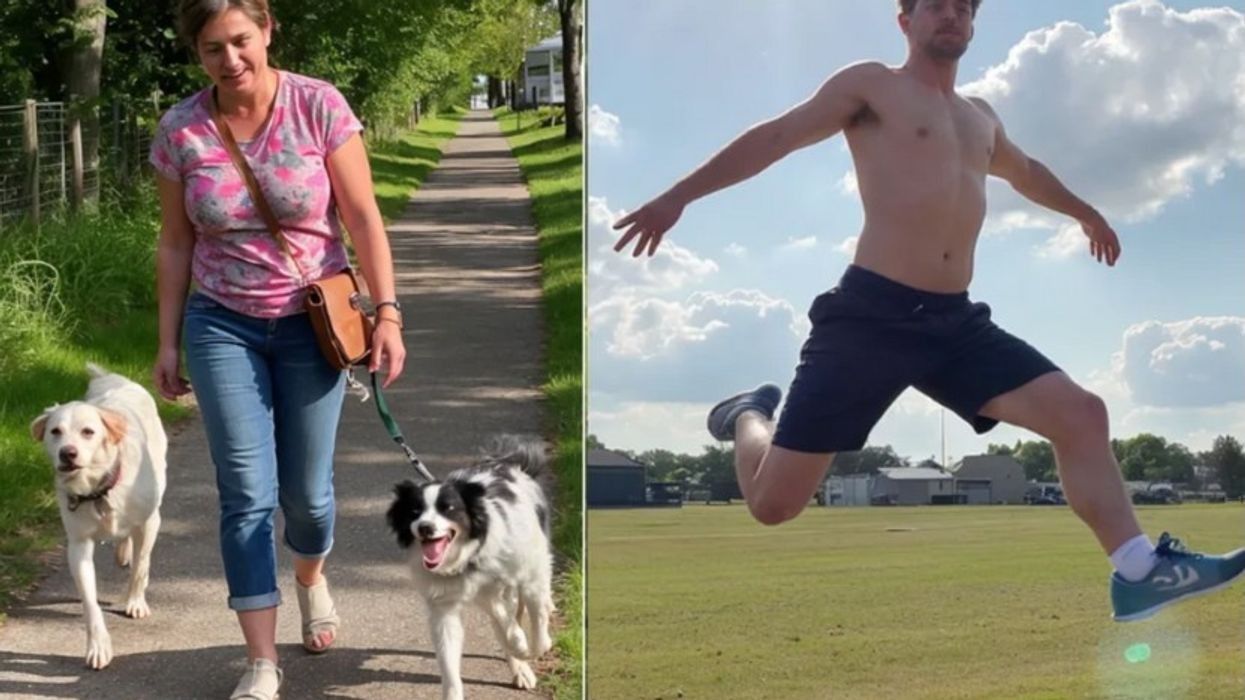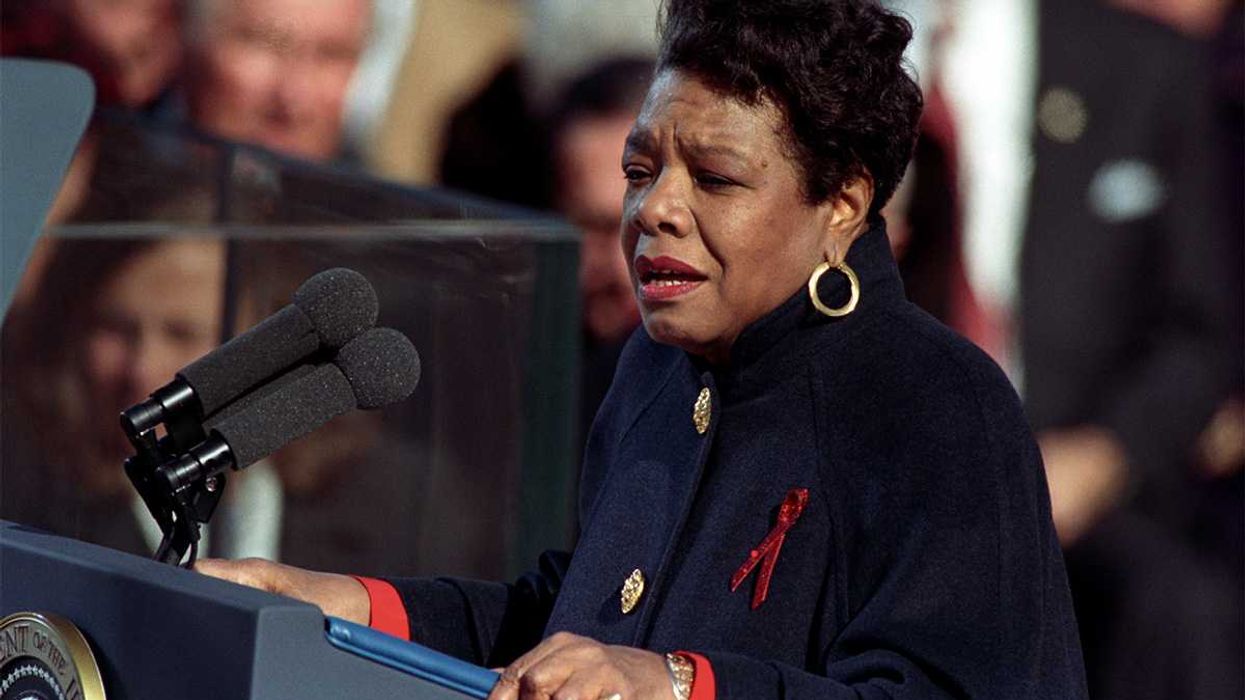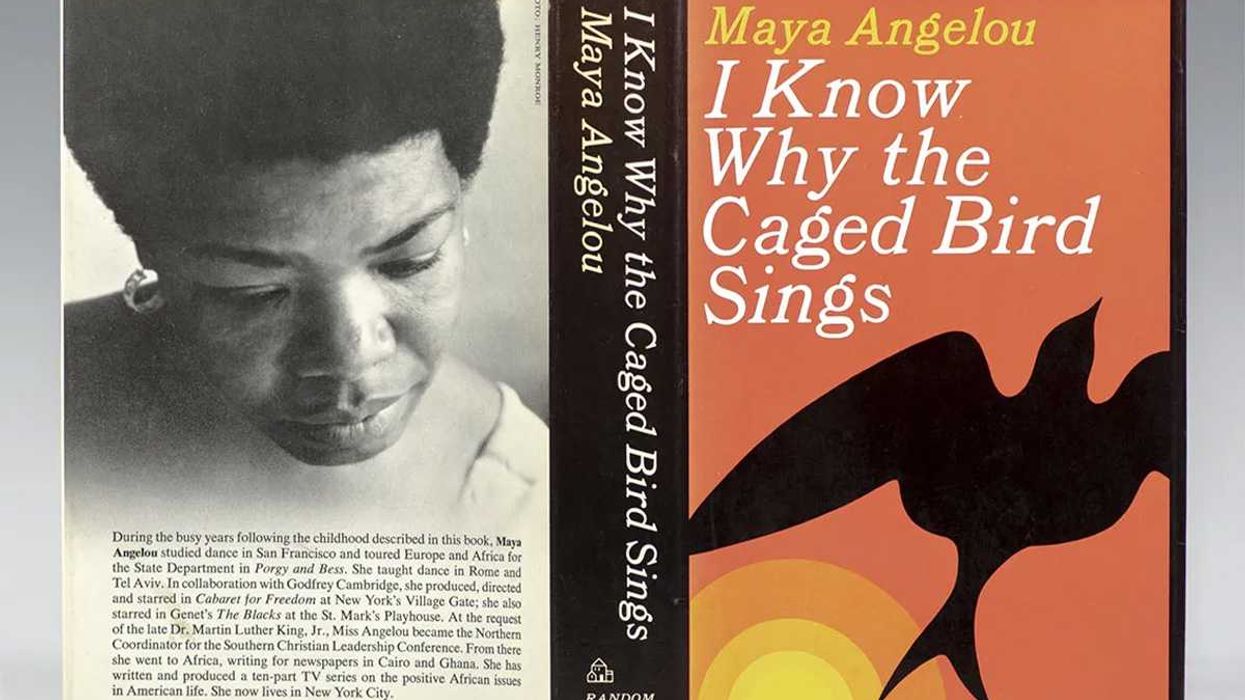When U.S. Olympic skier Lindsey Vonn is racing down snowy South Korean mountains in February, you can bet Donald Trump will be the last person on her mind.
Ahead of the Winter Games this year in Pyeongchang, the 33-year-old gold medalist sat down with CNN’s Christina MacFarlane to chat about competing once again for Team USA and the possibility of winning her second gold medal.
But the topic veered away from sports at one point and, as conversations often do these days, turned to Trump.
“You previously competed at three Olympic games under two presidents,” MacFarlane said. “How will it feel competing at an Olympic games for a United States whose president is Donald Trump?”
“Well, I hope to represent the people of the United States — not the president,” Vonn said, her tone clearly reflecting disapproval of Trump.
“I take the Olympics very seriously and what they mean and what they represent, what walking under our flag means in the opening ceremonies,” she continued. “I want to represent our country well, and I don’t think there are a lot of people currently in our government that do that,” she concluded.
Vonn’s patriotism and fervent opposition to Trumpism come at a remarkable moment in presidential history.
Unlike his recent predecessors, Trump has intentionally waded into controversy, capitalizing on cultural wars by attacking black and brown professional athletes who’ve protested during the national anthem at their games. Contrary to the president’s claims, the players aren’t protesting the flag, military, or anthem itself but rather using the moment to peacefully draw attention to racial inequality in our criminal justice system — namely, police brutality.
As a prolific American athlete, Vonn’s disapproval of Trump coinciding with her patriotism, which is focused on the people of the U.S. and not its leader, shouldn’t be overlooked.
When asked by CNN if she’d accept an invitation to the White House by the Trump administration, Vonn quickly responded, “Absolutely not.”
















 Self reflection.Photo credit
Self reflection.Photo credit  Older woman touching hands with a younger self.Photo credit
Older woman touching hands with a younger self.Photo credit  Sign reads, "Regrets Behind You."Photo credit
Sign reads, "Regrets Behind You."Photo credit 
 Couple talking in the woods.
Couple talking in the woods. Woman and man have a conversation.
Woman and man have a conversation. A chat on the couch.
A chat on the couch. Two people high-five working out.
Two people high-five working out. Movie scene from Night at the Roxbury.
Movie scene from Night at the Roxbury.  Friends laughing together.
Friends laughing together.
 Maya Angelou reciting her poem "On the Pulse of Morning" at President Bill Clinton's inauguration in 1993.William J. Clinton Presidential Library/
Maya Angelou reciting her poem "On the Pulse of Morning" at President Bill Clinton's inauguration in 1993.William J. Clinton Presidential Library/  First edition front and back covers and spine of "I Know Why the Caged Bird Sings."Raptis Rare Books/
First edition front and back covers and spine of "I Know Why the Caged Bird Sings."Raptis Rare Books/ 

 Tow truck towing a car in its bedCanva
Tow truck towing a car in its bedCanva  Sad woman looks at her phoneCanva
Sad woman looks at her phoneCanva  A group of young people at a house partyCanva
A group of young people at a house partyCanva  Fed-up woman gif
Fed-up woman gif Police show up at a house party
Police show up at a house party 
 A trendy restaurant in the middle of the dayCanva
A trendy restaurant in the middle of the dayCanva A reserved table at a restaurantCanva
A reserved table at a restaurantCanva Gif of Tim Robinson asking "What?' via
Gif of Tim Robinson asking "What?' via 

 An octopus floating in the oceanCanva
An octopus floating in the oceanCanva